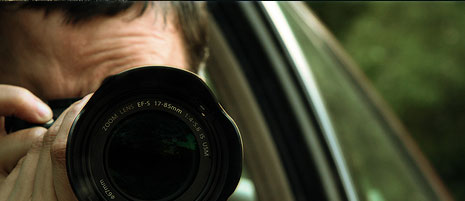Getting the Photography Equipment You Need
To know what kind of equipment you'll need to take a photograph, you'll first need to know the requirements of the photo shoot, or the subject you will be shooting. If you're going to be performing a semi-professional shoot, you'll probably need a backdrop, lighting meters, special lighting and, if called for, props. If you're doing a special project, you may have models in costume or make-up and need more extensive proprs like furniture, or an actual landscape. Other equipment you might need includes reflective light discs, extension cords, tripods, light filters and extra batteries are all things you m,ay want to be sure you have before embarking on any photo shoot.
Backdrops
Backdrops are made of all varieties of materials, and can be folded, rolled or sotred in many different ways. If you're thinking about getting a backdrop you foresee using repeatedly, make sure it is high quality material, and the company gives you adequate storing means so that your backdrop may be protected. Most backdrops are portable and self supporting, and usually come with their own case.
Tripods
Tripods are an essential piece of equipment for any photographer. A tripod is a three-legged stand that provides stability to the camera in many different situations. A shot can easily be ruined without a tripod - especially in instances of extended exposure where even the slightest shake can blur the whole shot.
Light Meters
A light meter is a device that measures the light you're using for your shoot. A light meter is typically essential for a good shot, as the lighting can make your break your picture. Too much light can wash out an image, causing glare. Inadequate light makes an image muddy, or suppress important details of the object. A photographer would use a light meter by pointing the device at the light source to measure the intensity of light, and allow for adjustments. Some cameras have light meters built directly in, but many older models require an external hand held meter. Kickers, fill lights, backlights and seperator lights, (all considered artificial light) can accentuate and enhance the qualities of a shot.
Light Filters
Light filters are generally used to enhance the depth of naturally occurring light and color. Sometimes, a lens fails to fully convey the deeper hues of natural light, and a filter will accentuate those hues. Light filters prevent objects from appearing washed out or smothered in digital media as well.
Other Photographic Supplies
During a photo shoot, there are a plethora of other supplies you might want to be sure you have handy - just in case. Negative holders, portfolios, matting material, photo paper, film and extra batteries are all very good supplies to have a stockpile of, should you need them. If you're an extremely organized photographer, you may also find you want to have albums and frames right on hand.
Negative holders will prevent film negatives from conventional cameras from becoming dirty and smudged, and also help in simple organization. Portfolios will help if you're in the situation where you may need to show examples of your work. Matting material is very important to those who do their own framing. And photo paper is an absolute necessary to print your images. For conventional camera users, extra film is always a good idea - you never really know how much film you're going to be using on a shoot. There are many different grades of film, but chances are, you are already familiar with what grade you like, and what grade you may need. If you're not, ask a professional at a camera store for their advice.

